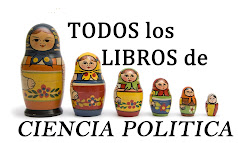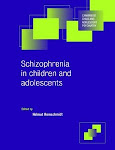
Ayaan Hirsi Ali - Nomad - From Islam to America - A Personal Journey Through the Clash of Civilizations (2010) Unabridged
AudioWorks | ISBN 9780743599122 | Narrator Ayaan Hirsi Ali | 10CDs | 12Hrs 14Mins | MP3 96kbps | 517Mb
Chapterised - Tracks every 2-12 mins
AudioWorks | ISBN 9780743599122 | Narrator Ayaan Hirsi Ali | 10CDs | 12Hrs 14Mins | MP3 96kbps | 517Mb
Chapterised - Tracks every 2-12 mins
Ayaan Hirsi Ali was born in Somalia, raised Muslim and came to the Netherlands as a refugee due to an unwanted marriage. After earning her collage degree in political science, she worked for a labour party. Reading The Atheist Manifesto (Atheistisch Manifest) by philosopher Herman Philipse and the Quran pushed her to renounce Islam and become atheist. Now she is a controversial political figure who is against Islamic culture.
This is the continuation of her astonishing story.
Recollections, philosophy and activism interweave in Ayaan's sequel to Infidel in order to explain, warn and inspire. The voyage she describes here incorporates more of the intellectual than the physical compared to that bestseller, while still integrating events since the murder of Theo van Gogh which ultimately brought her to America. The narrative of a farewell visit to her dying father, analyses of her family as microcosm for the Muslim world and the medicines she prescribes - the non-allopathic ones in particular - reveal a generous spirit and loving heart.
Part One deals with the death of her father and her relations with her mother, half-sister, brother and his son, and cousins in the years since. She holds up the history and experiences of several of her relatives to demonstrate the plight of Muslim families, particularly those in the West. Hirsi Ali's observations on her culture of origin correspond closely to those of the psychiatrist Dr Wafa Sultan who grew up in Syria and those of Egyptian-born Nonie Darwish, whilst her appraisal of the civilizational clash mirrors that of Brigitte Gabriel.
In the moving letter to her grandmother she appeals to Somalis and Muslims in general to admit that the old ways lead nowhere, that new thinking is needed and that it makes sense to let go of some certainties and traditions in exchange for progress. Alfred North Whitehead showed why symbolism needs to be constantly adapted and modified through new forms of expression. Worn-out symbols have to be remolded in accordance with changes in societal structure. Stagnation leads to regression that brings forth toxic fruits like tyranny and the terror of Jihad. Disruptive inversions like the evil trinity of postmodernism, multiculturalism & moral relativism do the same. The extremes of relativism & absolutism both stain the soil with blood.
Born in Somalia, Ayaan lived in Saudi Arabia and Ethiopia as a child and in Kenya as a teenager. She observes that her move from Africa to the Netherlands and thence to the United States has been a mental trek from tribalism to truth, a journey through mind, space and time. In an appealing way the reader rediscovers the marvels of America through Ayaan's eyes. Well, the marvels and the multiculturalists for whom she has little patience. She vigorously confronts them and the faux feminists, exposing their hypocrisy and explaining why the postmodernist dream of a charming "mosaic" of cultures is a dangerous delusion. Their perverse agendas create pits of abuse, oppression and misery within the western democracies. Standards of behavior apply to all, the author insists.
Hirsi Ali identifies fear and self-loathing as the poisons that inactivate some westerners' capacity to differentiate between the rights & dignity of the individual and a blind embrace of a culture which denies that dignity and tramples on those rights. Multiculturalism assigns the children of immigrants to a wasteland between cultures where they become easy prey for radical clerics. Recognizing the sadism behind postmodernist piety's sweet-sounding phrases, she correctly diagnoses this coercive compulsion as a cover for racism.
Ayaan identifies gender, buck$ & violence as the main obstacles to the integration of immigrants into Western society. Muslim attitudes on the status of women, education of girls, credit, debt and financial planning weaken people's ability to honor their obligations or avail themselves of opportunity. And blind belief in the inerrancy of the religion's scripture and the literal interpretation thereof invites the flame of violence into minds already made unstable by envy, shame, unemployment and taboos against healthy self-expression and the articulation of perfectly normal needs.
Antidotes against these pathologies encompass a long overdue revision of gender roles for the emancipation of Muslim women so that society may be enriched by their talents. Another treatment would be immersion in Enlightenment values in order to free the captive soul from the harsh absolutism that breeds fatalism, rigid thinking and spiritual morbidity. To the surprise of many and the indignation of some, Ms Hirsi Ali even calls on the churches for help as she considers a religion of love and forgiveness superior to one of fear and guilt. She is quite correct in doing so and this ought not to be viewed as a betrayal of the Enlightenment.
By putting compassion first, she places herself within the framework of what Gertrude Himmelfarb termed the Anglo-Saxon Enlightenment. It differed markedly from the Continental variety which was dominated by French intellectuals' total rejection of religion. Since most human beings need external, timeless referents or at least a sense of purpose and meaning, this sinister strain produced the utopian movements or Secular Salvationist Ideologies that have afflicted mankind so grievously. The violence of the French Revolution foreshadowed the atrocities of the previous century's murderous collectivisms as well as of Islamism. And it simmers just beneath the surface of the aforementioned false philosophies.
No ideologue, Ayaan Hirsi Ali yearns to free the shackled minds and comfort the anguished souls. Her enthusiasm for the Enlightenment does not blind her to the fact that spirituality offers solace and guidance to many who need them and healing to the wounded soul. She evidently recognizes the cynical self-indulgence & cold indifference of those who reject all absolutes. Preserving a free society requires respect for tradition as well as the constant reappraisal and revision of symbolic codes. In this regard, Michael Polanyi's views in Science, Faith And Society offer valuable insight. Nomad delivers a great gift of understanding, compassion and effective remedies to help heal a hurting world.
Wikipedia - Ayaan Hirsi Ali
The AHA (Ayaan Hirsi Ali) Foundation
Ayaan Hirsi Ali Web-Log
BBC Profile
American Enterprise Institute for Public Policy Research Profile
Also Includes The Film Submission, Part 1, Ayaan Hirsi Ali made with Theo van Gogh shortly before his murder by a muslim extremist
And Ian Buruma - Murder in Amsterdam, The Death of Theo van Gogh and the Limits of Tolerance PDF
HotFile
FileServe
Ayaan Hirsi Ali - Infidel {My Freedom}
And Ian Buruma - Murder in Amsterdam, The Death of Theo van Gogh and the Limits of Tolerance PDF
HotFile
FileServe
Ayaan Hirsi Ali - Infidel {My Freedom}
.





Publicar un comentario